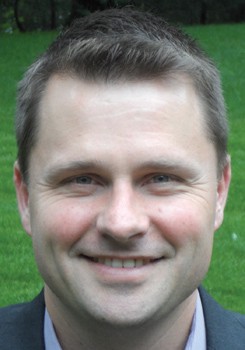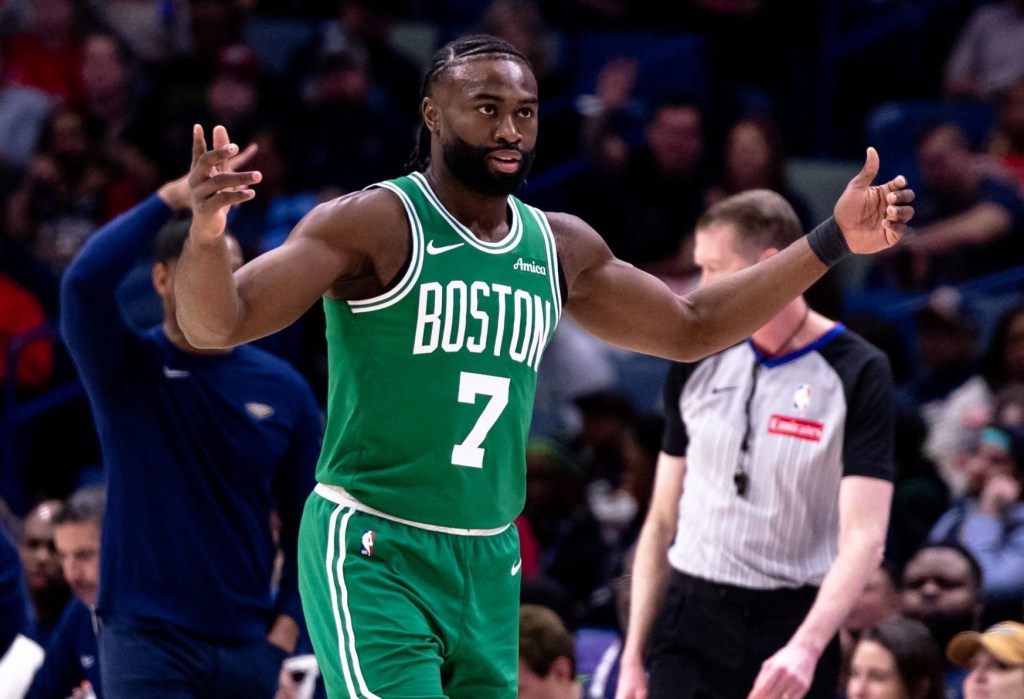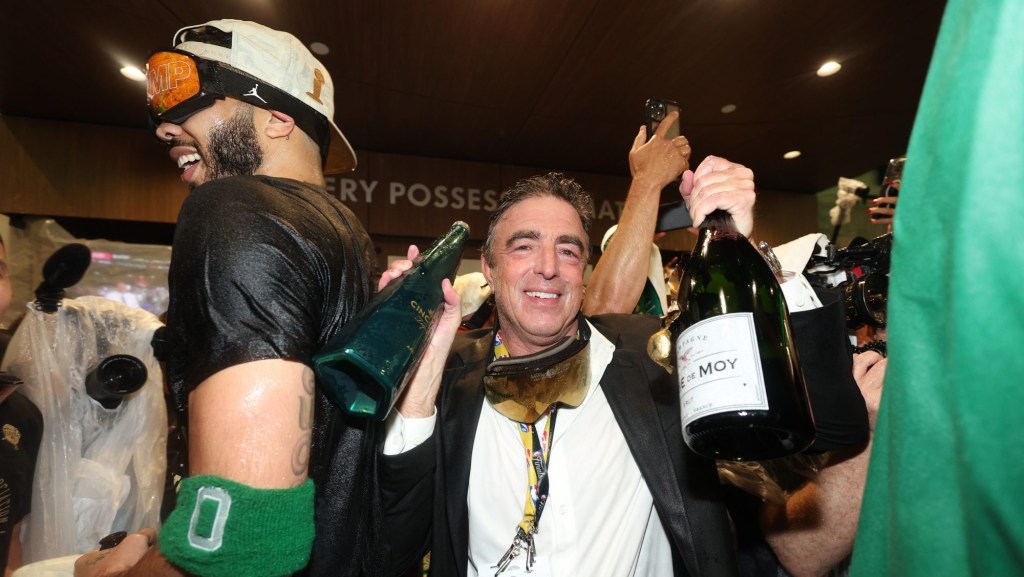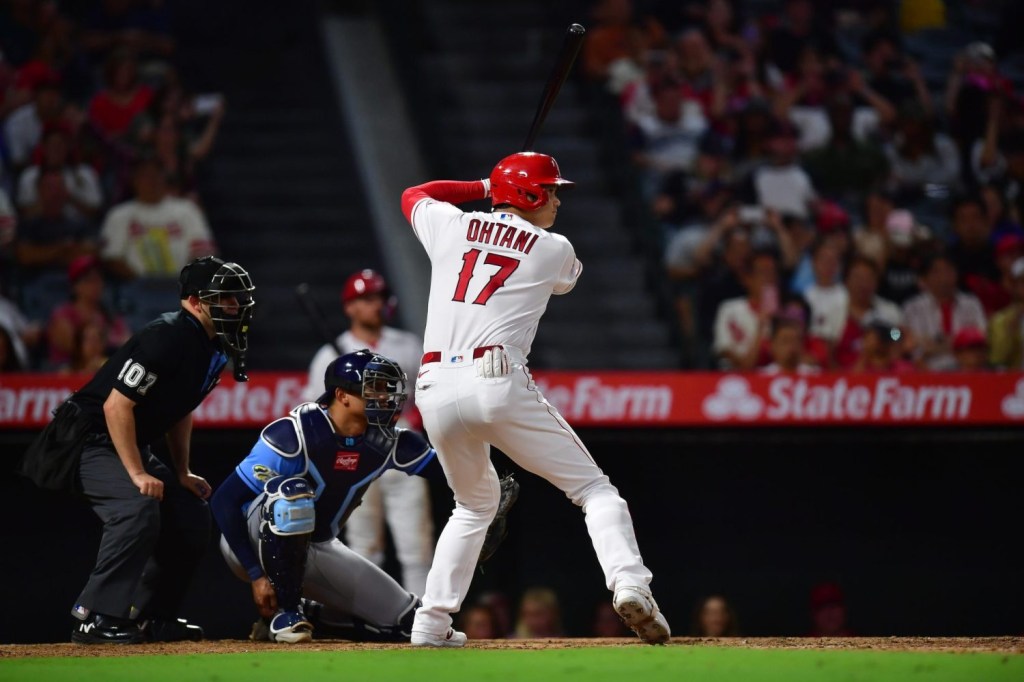By: Joe Londergan, @joehio_

At the heart of the most successful professional sport organizations, you will find sales people and teams who understand the nuances of driving excitement and attendance for their respective franchises. A prime example of this type of professional is Brett Zalaski, the founder/owner of Get After It Sales. Front Office Sports spoke with Brett on his entrance into the sport industry, his impressive sales performance with the Columbus Crew Soccer Club, and his current endeavor with Get After It.
Zalaski attended Hamilton College in Utica, New York, where, in addition to playing varsity baseball, he took on a variety of sports roles including assistant sports information director, as well as covering sports for the student newspaper and student radio station. It was here where he learned the importance of being skilled at multi-tasking.
“Learning how to handle all of those things has been really critical for me in sales. Handling so much going on at all times, and so many different things going on at all times, I could be very specifically focused on one thing, and then I was, and still am, always able, at the snap of a finger, to turn my attention in the direction of something else. I think it just comes down to your ability to focus. I think your ability to focus on one thing and do that as well as you possibly can, and then very quickly make that transition to something else and put time and focus and energy into that; I think that’s really important.”
“I was able to learn that quite quickly from my father, who was a vice principal at a high school, coached our teams and was a high school basketball referee. To watch him doing the things he was passionate about, but also then throw himself into everything he did with energy and passion and focus, I think that really helped me in terms of what I have done from my career in college to my career out of college as well.”
Brett admits that upon exiting college, he had no idea a career in sports was an opportunity. He undertook a job with an executive consulting company and it was there that he really learned that he loved working in sales.
“I fell in love with sales before sports business. So making that transition over to sports business, it kind of came out of left field for me. One day I came home for Thanksgiving from Washington, D.C., where I was living, and Scott O’Neil’s father, who was an assistant basketball coach in my hometown, had talked to Scott about my sales ability. He told him I’d been doing really well at the Corporate Executive Board, and he asked if I’d be interested in working for the NBA. So I went to that interview in New York, not really knowing what I was getting into, but I was very lucky that the NBA’s marketing and business operations were looking for progressive people with different takes or different thoughts. So they took a chance on me and through my time at the NBA I really got to learn sports business. Between sales, that I was already in love with, and sports business, it just seemed like such a great fit.”
These experiences led Zalaski to realize there are some misconceptions about working in sports.
“I think the biggest misconception about working in the sport industry is that you are a paid spectator. Or that the offseason is where nothing happens. I work twice as hard in the offseason and as a sales person and a sales manager, I always tell my reps that game days are your absolute best opportunities to track down and find new leads. I think both of those things are sometimes very big misconceptions. I believe much of the business is made by what you do from the final out or the last whistle until the first pitch or the first whistle of the next season. It’s so critically important and the best reps are the ones who utilize their game day opportunities. The best sales people and the best sales organizations are the ones that utilize game day opportunities as true selling and prospecting opportunities.”
Brett defines game day opportunities as the chance to convert fans at an event into new sales prospects for a future date, as opposed to resting on their laurels during the actual competitions.
“As opposed to getting on site for a game and saying ‘all my hard work has paid off. I’m going to sit back and watch the game and enjoy it’, the best sales people and sales organizations are the ones that look at this and say ‘alright, there’s 20,000 people in the building, and we know 5,000 to 6,000 of their names’ based on how people buy tickets and how many tickets were purchased. There are 15,000 people there that you don’t know the names of. Go find those people and turn those people into sales prospects because they are never going to have more excitement about the product than they will when they’re at the game. There will never be a better sales opportunity than when they’re actually experiencing the product. Also, it’s a great opportunity to bring potential prospects who are close to closing down to the game to show them the experience they’re about to buy into and utilizing it to give them a tour of the facility to show them the seats they are going to purchase and to engage with them in that way. Those people that look at that as the best sales opportunity end up being the best reps. It is sad that most people don’t do it.”
Brett’s illustrious sales career in the sports world has included stints with the NBA, the Boston Blazers of the National Lacrosse League, the Washington Freedom of Women’s Professional Soccer, the Major League Soccer (MLS) National Sales Center, and the Columbus Crew Soccer Club. While in Columbus as the Senior Director of Ticket Sales, Zalaski and his team broke the franchise record for ticket sales revenue twice and raised their B2B ticket sales revenue by almost 300%.
“I was really lucky. We worked with a management group, all the way up to our senior vice president and president and our ownership group, who allowed us the opportunity to grow our ticket sales team but also to take on this idea and invest resources into training our team to be the best sales team in MLS. That was our goal. We made this idea that we are going to turn this into the best sales team in MLS, and we continued to find people that wanted to believe in that mantra and wanted to get there as a part of that team and organization. I think building and training and growing in sales culture can be very difficult if you don’t invest resources into it. It just doesn’t come naturally.”
“We really had to take something that was declining a little bit over the years, the culture of the Crew, and to not only change the culture but to get some of the people that had been there for the previous campaigns to really buy into it and to want to be a part of it. Some of the best people there had been there for a while, but they really made a strong turn to want to be a part of something great. If you keep pushing people and finding people that want to be a part of something great, there isn’t that day-to-day slog or day-to-day momentum if you remind people that this is our goal; this is what we’re trying to do.”
“If people buy into it, great. They’re going to want to be a part of it and be there for a long time. If they don’t want to be a part of it, it becomes our job to find new opportunities for those people. They may not be bad sales people; they just don’t want to necessarily buy into the vision of being the best sales team in MLS, and that’s what we kept pushing for every day. When we found that group of people who were that connected to it, it made it really exciting and the results speak for themselves.”
Remarkably, during Zalaski’s two years with Columbus, the Crew had the highest attendance growth in MLS while simultaneously posting two of their lower win totals in franchise history. Brett and his team found ways to keep boosting their numbers despite this.
“It comes down to two different things. One, we did a really good job of finding people and converting people where (wins and losses) didn’t matter. So we looked at the millennial community and we pushed that this was an opportunity for them to be outside in the summer, spring, and fall, which in Ohio is gorgeous. It’s a great opportunity for them to be outside, be with their friends in a professional sports environment that they could afford. By focusing on that community, and making it more of a social community, made it a very easy sell. Best case scenario, the Crew is winning and they are outside with their friends drinking a beer. Worst case scenario, they’re outside with their friends and they’re drinking a beer.
Second, we took a look at the business community and said ‘that’s a community that doesn’t necessarily care about wins or losses too’. We put together a great plan and executed very strongly against the corporate community as well. We spent a ton of time training our reps to win that one on one battle and to teach them that we need to take the play on the field out of the equation a little bit, and we need to focus on what they gain by being in the stadium, by being around their friends, and how it can move their business forward. What are the solutions we can provide businesses based on our arena? We started really solving problems for people as opposed to just selling them tickets.”
“Work your tail off and don’t be afraid to fail. I wish that was something that I didn’t have to learn the hard way. I think when I started in sales, I was trying to be perfect and I wasn’t really throwing myself into it in a way that would make it be my fault if it didn’t work. Once you get into college you tend to focus on the things that you’re really good at and then all of a sudden you get into the professional world where things are harder and things don’t come as naturally. I’ve learned a lot more from my failures professionally and personally than I have from any of the successes. Once I understood that, it made me a better person and a better professional.”
— Brett Zalaski
After over two years as the Senior Director for the sales staff in Columbus, Zalaski made the decision to transition to a solo project with Get After It Sales, where he works with sales staffs of different sport organizations to train them how to achieve their goals and surpass their projections.

“It was something that I had been thinking about back when I started at the national sales center. I spent the vast majority of my time recruiting and training and teaching and coaching new people every forty-five days. It was something I had in the back of my mind, and the more that we worked with sales trainers, the more I understood what they did on a day to day basis, and the more intrigued I was. We got to a point at the Crew where I felt like we were so solid and so strong as a sales organization that my presence there was essentially blocking some people that could have some very long and very bright futures in the organization at Columbus. What I love and I’m most passionate about is teaching, coaching, and working with people that are on the front line of sales and helping them become smarter, more efficient, and better at what they do on a day in, day out basis. I figured this is probably going to be the one opportunity in my career where I can really make that a focus.”
Brett’s methods with Get After It focus on encouraging teams and sales representatives to find how aspects of their own personas can make them into better sales professionals.
“So I think my sales training really doesn’t focus on ‘this is what you should say when someone says this’. There’s certainly a portion of what I do that touches on that. But I think the best sales people are the ones that are the most genuine and authentic. So what I really try to do when I get to work with the teams and the organizations that I work with is really empower the sales reps to be themselves but in a more efficient, smarter way. Having just come off the front line of sales, working in minor league sports and then MLS, I needed to teach reps how to be really efficient and really smart about what they did on a day in and day out basis.
“So that’s the focus that I take in to my sales training: How can I empower reps to be themselves in a way that is going to make sales easier? So I focus on processes, attitudes, and behaviors that I believe will have very long lasting, positive influences on their sales career. I don’t want to teach them what I specifically would do in a situation, because every single person is different and unique. No two people sell the same way. My goal is to empower them to tap in to that but also make them think what are some things that they can change or adjust that will make you better at their job. It’s a very 2016 look at what a sales person does to be successful.”
Through it all, Brett iterates that there are two incredibly important keys to succeeding in sales.
“Work your tail off and don’t be afraid to fail. I wish that was something that I didn’t have to learn the hard way. I think when I started in sales, I was trying to be perfect and I wasn’t really throwing myself into it in a way that would make it be my fault if it didn’t work. Once you get into college you tend to focus on the things that you’re really good at and then all of a sudden you get into the professional world where things are harder and things don’t come as naturally. I’ve learned a lot more from my failures professionally and personally than I have from any of the successes. Once I understood that, it made me a better person and a better professional.”
We would like to thank Brett for his time and his continued advocacy of Front Office Sports.
Follow Brett on Twitter here.
Connect with Brett on LinkedIn here.

If you want to learn more about Fans Favorite Fan, check out this link https://www.fansfavoritefan.com.

















